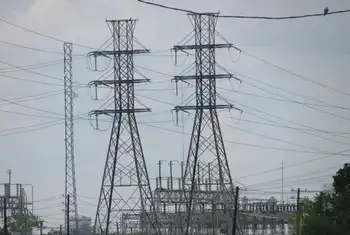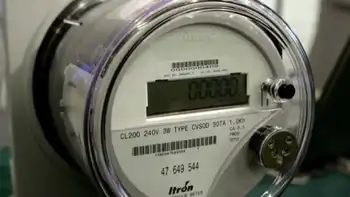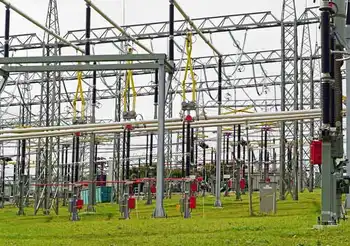Energy bills advance in Vermont Legislature
Both the nuclear decommissioning bill and the renewable energy bill, pushed by environmentalists and nuclear critics in a Democratic-controlled Legislature, are expected to be vetoed by Republican Gov. Jim Douglas, who fears they'll drive up electric bills.
House action on the decommissioning bill came amid a debate in which Republicans accused majority Democrats of violating legislative process. One GOP lawmaker accused the measure's main sponsor of lying during floor debate.
Rep. Patty O'Donnell, R-Vernon, whose district includes Vermont Yankee, said Rep. Tony Klein, D-East Montpelier, "blatantly lied out on the Statehouse floor" when he said he had consulted with members of a conference committee on the decommissioning bill before introducing an amendment to it.
Klein responded, "I'm here for good legislation, and that's what we did."
Rep. Joseph Krawczyk, R-Bennington, one of the conference committee members, said in an interview that he and Klein had discussed the amendment, but that some of the language had changed by the time Klein introduced it during House debate. "I wouldn't take that as a lie."
The allegation reflected the bitterness that has developed around the issue since Klein and the House Natural Resources Committee drafted a decommissioning bill similar to one Douglas vetoed last year.
Backers of the measure say they're worried that Vermont Yankee owner Entergy Nuclear won't have enough money on hand to decommission the plant when it shuts down. The reactor's current 40-year license is set to expire in 2012, but it is seeking a 20-year license extension.
Klein's amendment said the plant should be ready to begin the decommissioning process in March 2012 if it shuts down then. The fund currently is estimated to be about $500 million short of what will be needed, and it has been shrinking due to recent investment losses.
The Douglas administration has sided with the plant that the demand for topping off the decommissioning fund is unreasonable, that it will prompt a lawsuit from Entergy or will cause the company to increase what it would charge for power sold to Vermont utilities if it is relicensed.
Plant spokesman Robert Williams said a lawsuit is a possibility, and echoed Republicans' complaints about the legislative process.
"Certainly bringing these issues to the courts is an option but it should not have to come to that," he said. "Legislators should recognize that this bill lacked a legitimate process in its development and is unfair on its face."
Douglas also has sharply criticized the renewable energy bill. The measure calls on state utility regulators to set above-market wholesale rates for electric companies to pay to developers of small-scale wind, solar and other renewable energy projects.
The bill also would allow municipalities to set up programs under which they would effectively lend money for owners of homes and businesses to install renewable energy projects.
Related News

5 ways Texas can improve electricity reliability and save our economy
DALLAS - The blackouts in February shined a light on the fragile infrastructure that supports modern life. More and more, every task in life requires electricity, and no one is in charge of making sure Texans have enough.
Of the 4.5 million Texans who lost power last winter, many of them also lost heat and at least 100 froze to death. Wi-Fi stopped working and phones soon lost their charges, making it harder for people to get help, find someplace warm to go or to check in on loved ones.
In some places pipes froze, and people couldn’t get water to drink…




